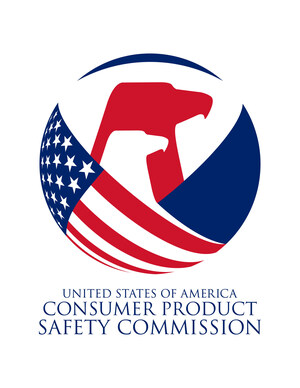WASHINGTON, April 29, 2011 /PRNewswire-USNewswire/ -- Tornados and other severe weather across the southern United States, including hard-hit Alabama, Mississippi, Tennessee, Arkansas and Georgia, have caused major destruction resulting in widespread power outages. The U.S. Consumer Product Safety Commission (CPSC) is warning residents in these areas that there are deadly dangers associated with using portable generators. Generators are often used to deal with the loss of electricity. Carbon monoxide from generators resulted in at least 43 deaths in 2009.
(Logo: http://photos.prnewswire.com/prnh/20030904/USCSCLOGO)
CPSC strongly warns consumers to never use a generator indoors – including garages, basements, crawlspaces and sheds – even with ventilation. Exhaust fumes contain extremely high levels of carbon monoxide (CO) which can rapidly become deadly if inhaled.
Consumers should only use a portable generator outdoors in a dry area away from any doors, windows and vents that could allow CO to come indoors. Wait for the rain to pass before using a generator, as consumer-grade generators are not weatherproof and can cause electrocution and shock when used in wet conditions.
Additional lifesaving safety tips from CPSC include:
- If you start to feel sick, dizzy or weak while using a generator, get to fresh air right away. The CO from generators can quickly lead to full incapacitation and death.
- Do not connect the generator directly into your home's electrical system through an electrical outlet – this is an extremely dangerous practice that poses a fire hazard and an electrocution hazard to utility workers and neighbors served by the same transformer.
- If using a generator, plug individual appliances into heavy duty, outdoor-rated extension cords and plug cords into the generator.
- Check that the extension cords have a wire gauge adequate for the appliance loads and have all three prongs, including a grounding pin.
- Keep charcoal grills outside. Never use them indoors. Burning charcoal in an enclosed space can produce lethal levels of carbon monoxide.
- Check to make sure your smoke alarms and carbon monoxide alarms have batteries and are working.
For more information, go to http://www.cpsc.gov/info/co/index.html
The U.S. Consumer Product Safety Commission is charged with protecting the public from unreasonable risks of injury or death associated with the use of the thousands of consumer products under the agency's jurisdiction. Deaths, injuries and property damage from consumer product incidents cost the nation more than $800 billion annually. CPSC is committed to protecting consumers and families from products that pose a fire, electrical, chemical or mechanical hazard. CPSC's work to ensure the safety of consumer products - such as toys, cribs, power tools, cigarette lighters and household chemicals – contributed to a significant decline in the rate of deaths and injuries associated with consumer products over the past 30 years.
Under federal law, it is illegal to attempt to sell or re-sell any recalled product.
To report a dangerous product or a product-related injury go online to www.SaferProducts.gov, call CPSC's Hotline at (800) 638-2772 or teletypewriter at (800) 638-8270 for the hearing impaired. Consumers can obtain this news release and recall information at www.cpsc.gov. To join a free e-mail subscription list, please go to www.cpsc.gov/cpsclist.aspx.
Release #11-208
CPSC Hotline: (800) 638-2772
CPSC Media Contact: (301) 504-7908
SOURCE U.S. Consumer Product Safety Commission
WANT YOUR COMPANY'S NEWS FEATURED ON PRNEWSWIRE.COM?
Newsrooms &
Influencers
Digital Media
Outlets
Journalists
Opted In





Share this article